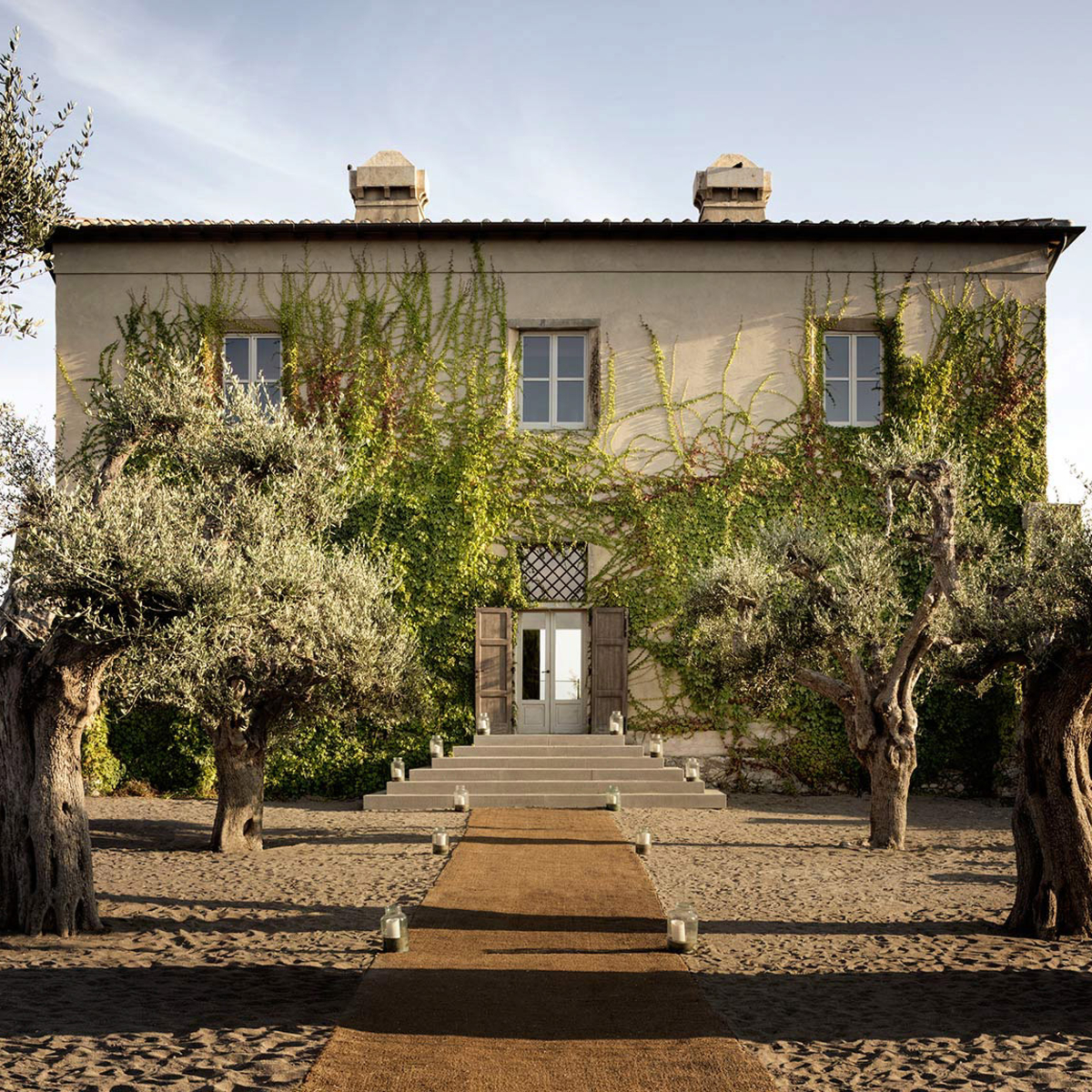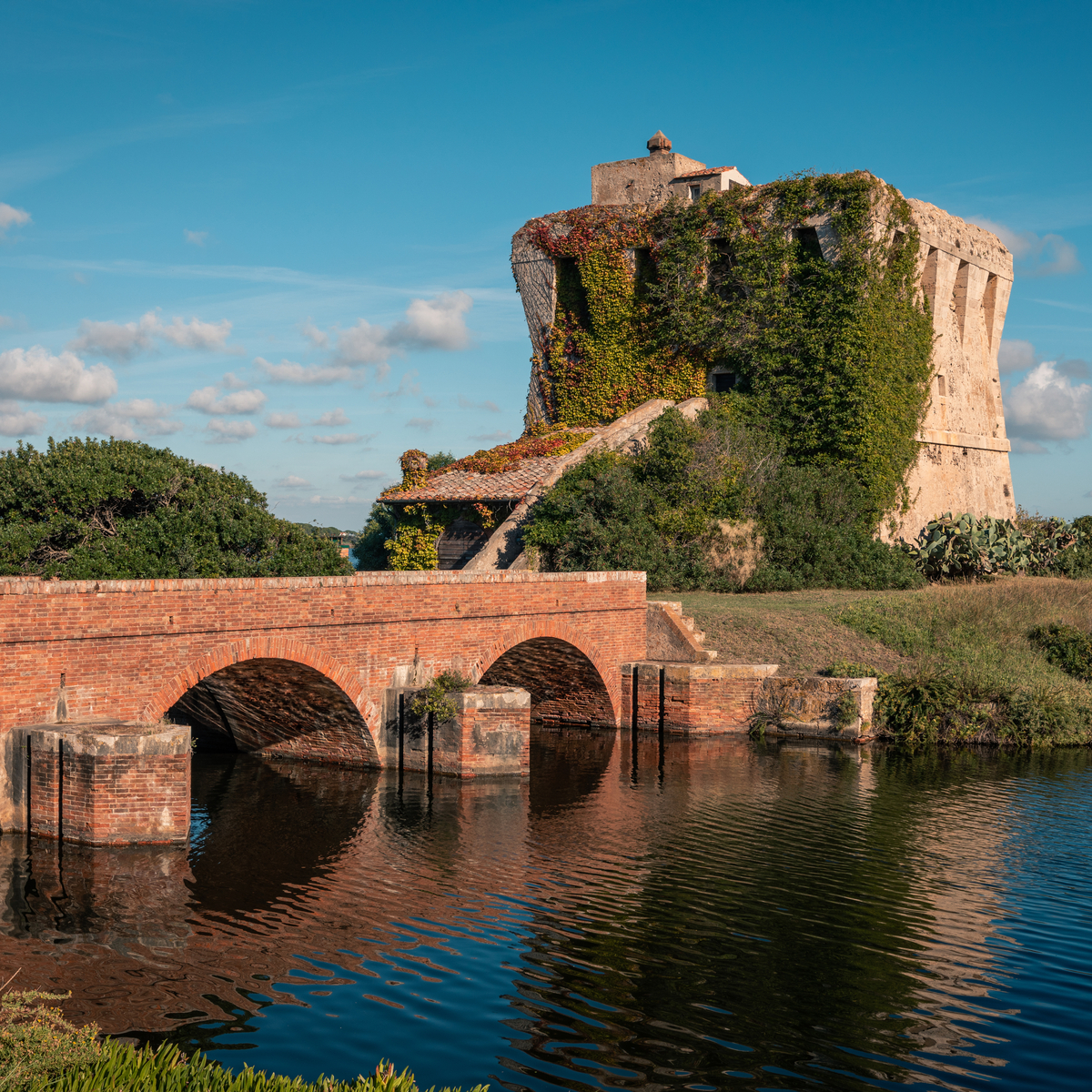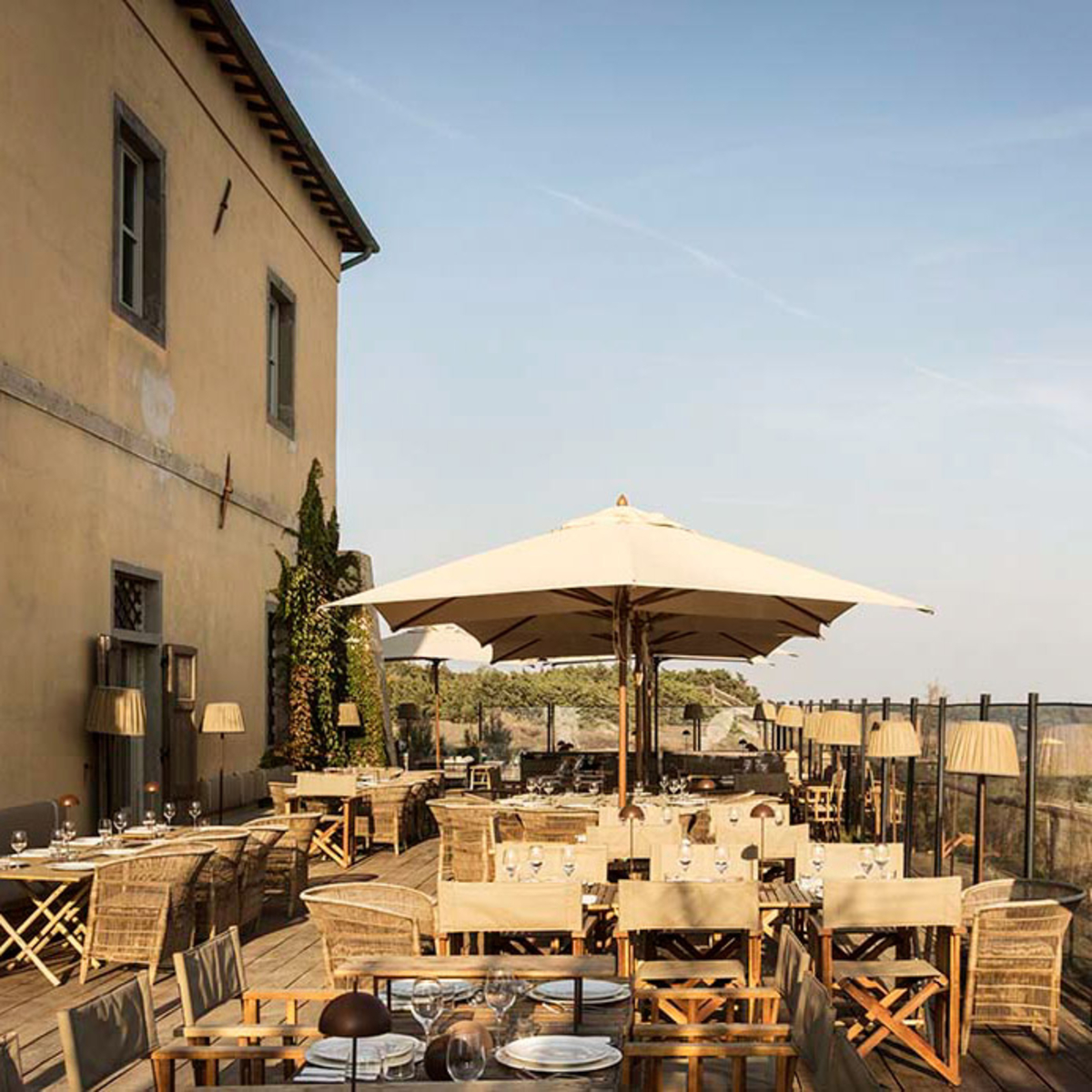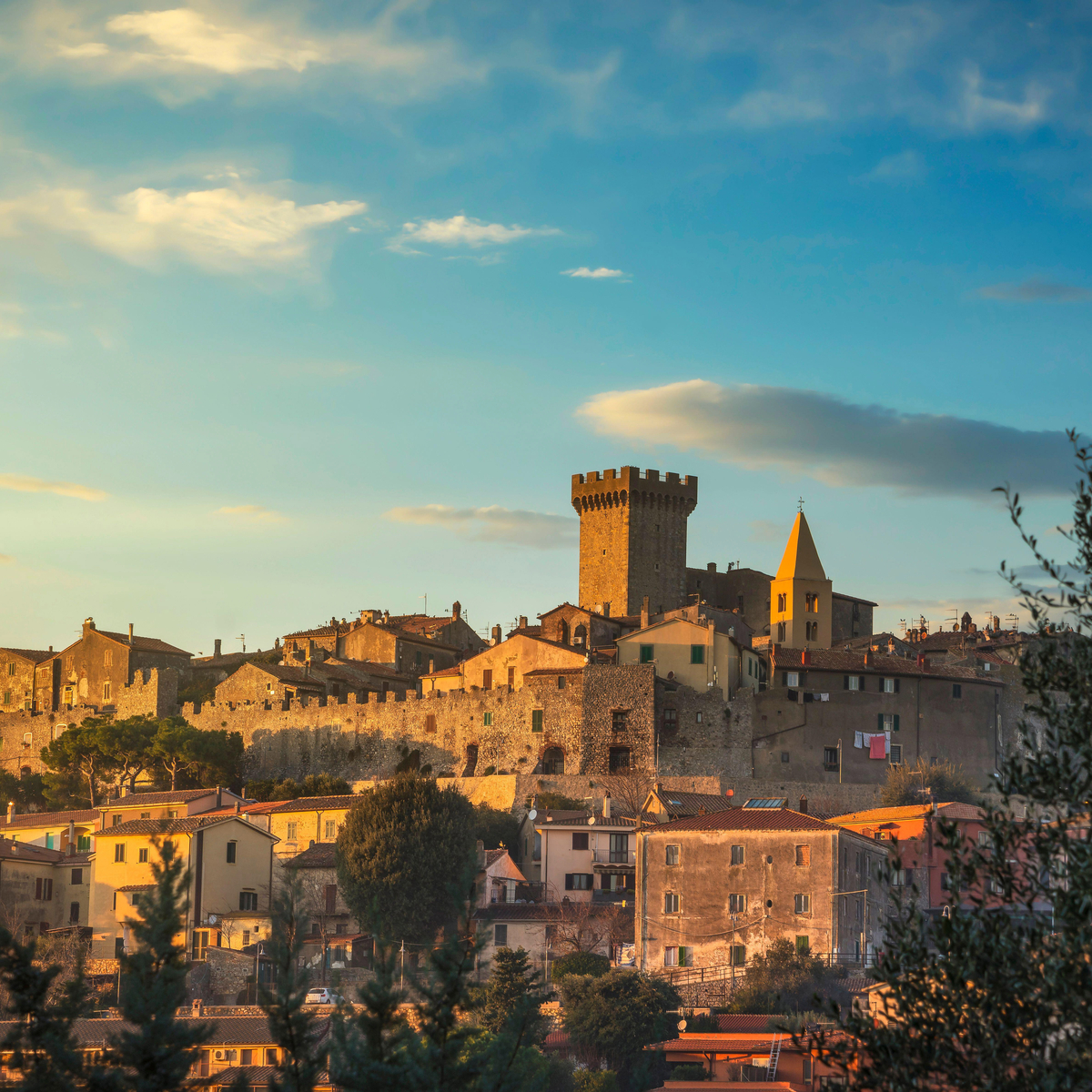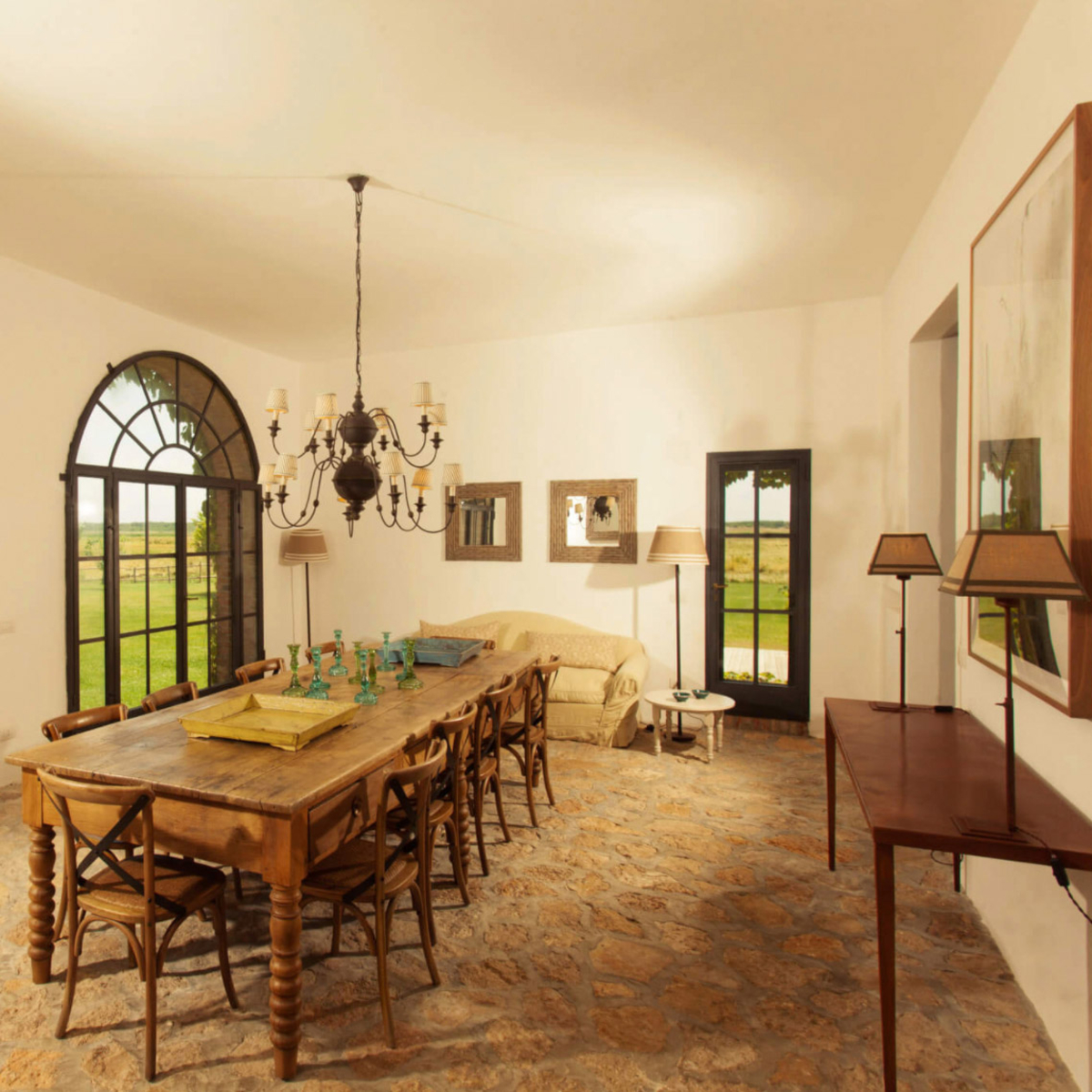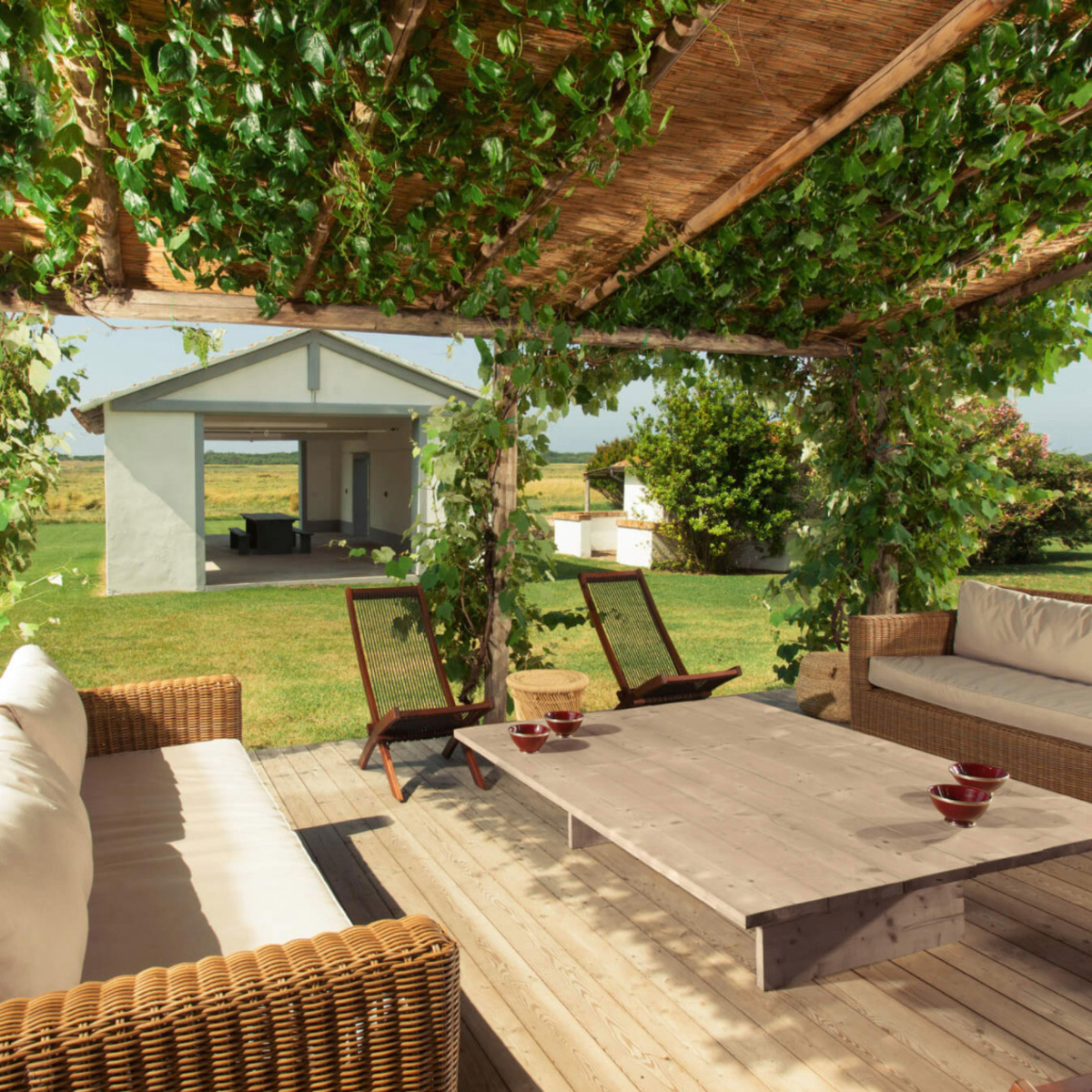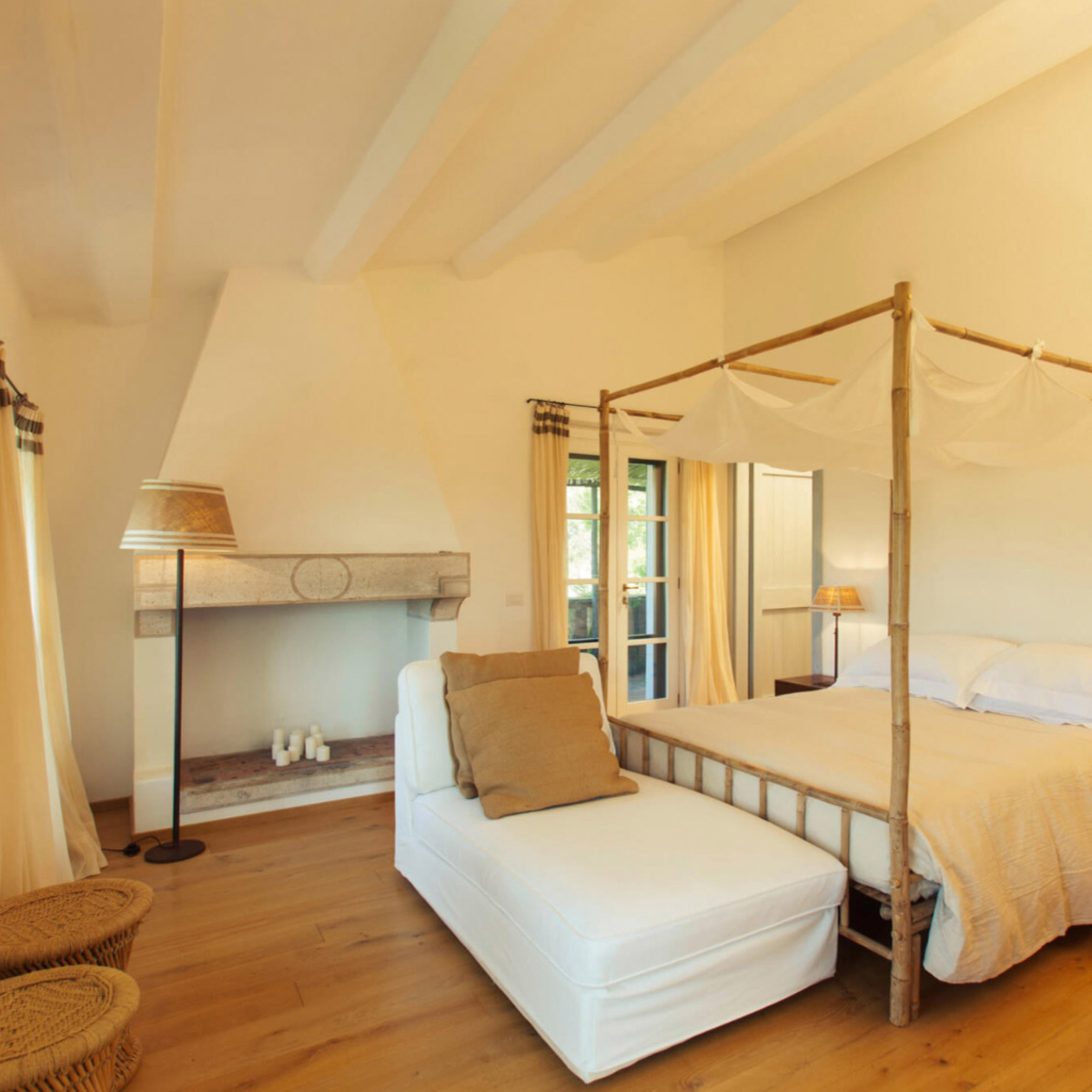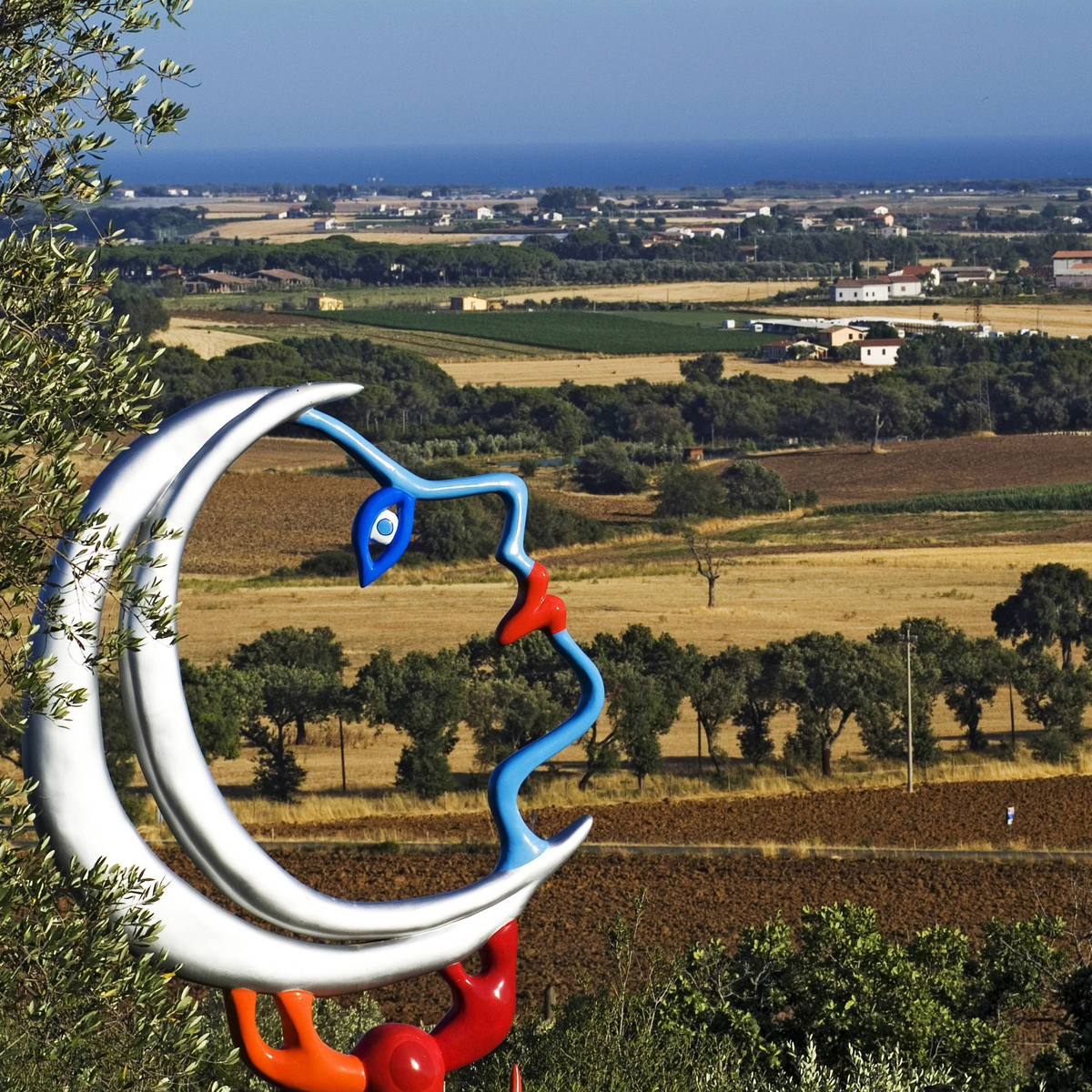In Italy’s chic-est seaside resort, there are no luxury hotels, restaurants, boutiques, spas, or nightclubs. Yet, as on Ibiza back in its heyday, anyone who is anyone knows someone in Capalbio. If you’re there, you are someone’s guest, and that someone knows the Puri Negris.
Carlo Puri Negri’s great uncle, Piero Pirelli, the son of the founder of the Italian tire manufacturer Pirelli, first bought property in Capalbio—stretching from the hillside town of Capalbio Alto to the nearby Mediterranean—with the Resta Pallavicino family and a few friends in 1922. A remote strip of land hugging the southern coast of Tuscany, Capalbio had long been a preserve for left-wing Italian intellectuals, writers such as Umberto Eco, and other academics too poor and serious-minded for the glitzy ostentation of nearby Porto Ercole, home to the ultra-luxe Hotel Il Pellicano.

